Market research is essential, whether you're about to start a business or launch a new product, feature, or location. You have to ascertain that the opportunity for your idea or product exists, that you have a unique selling point, and that there is a demand for it.
That seems obvious, but market research is often neglected by those who have a vision and want to go with their instincts instead of collecting data. People are irrational optimists—which, on the one hand, drives the market forward and, on the other, accounts for myriads of failures.
To avoid failure, do your market research, and go further than establishing your business's or product's place in the world of businesses and products. Dive into competitor research to get ideas about product development, pricing options, marketing, and building a relationship with your target audience.
For that kind of research, you'll need an array of tools. We'll go through some of the best ones in this article to see how each one can help you understand the market and ensure that you come out a winner.
1. Awario: For understanding your competitors' popularity and reputation on social media, and calculating your brand's share of voice.
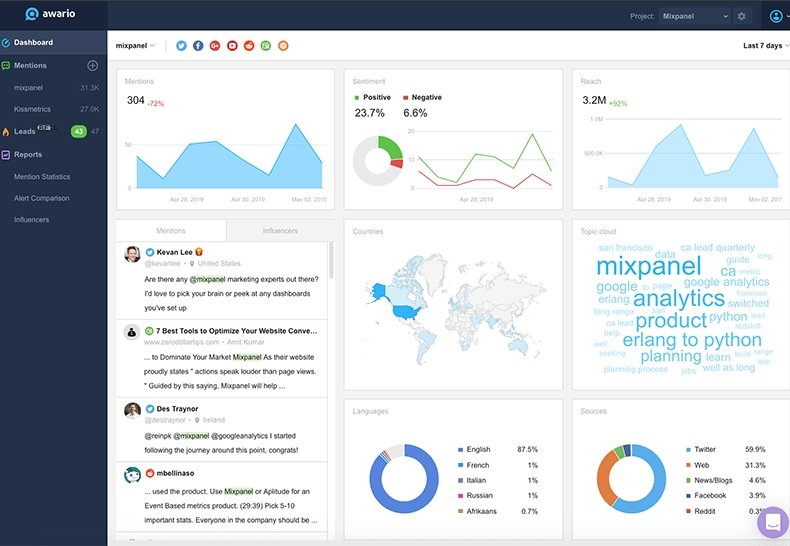
Awario (developed by my company) is a social listening tool that monitors social media networks, news, blogs, forums, and the Web for mentions of a given keyword. It's a big help when you're trying to understand more about the market and your competition.
Create alerts for your main competitors (just like you would with Google Alerts) and wait for Awario to collect the data. The data will show you how much people talk about your competitors, how that has changed over time, what the prevailing sentiment behind the talk is (positive, negative, or neutral), and where the talk happens—in which languages, geographical locations, and social media networks.
If you create an alert for your own brand, the tool will also show you your share-of-voice metric: how much of the online conversation accounts for your brand in relation to your competitors' brands.
Pricing: $29/month for the Starter plan, $89/month for Pro, and $299/month for Enterprise. Saves you 2 months' worth with a yearly plan. Offers a free 7-day trial.
2. Pew Research Center: For collecting data on your target audience.
Collecting demographic and psychographic data is the starting point of exploring your target audience. The Pew Research Center website has free downloadable research papers that you can use to understand the lives and personalities of your target audience—from social media usage to political views. You can find information that you might've not even thought about before opening the database. Its sleek UI and interactive charts will make the process easy, and even entertaining.
Pricing: Free
3. CLARITAS: For collecting even more data on consumer behavior.
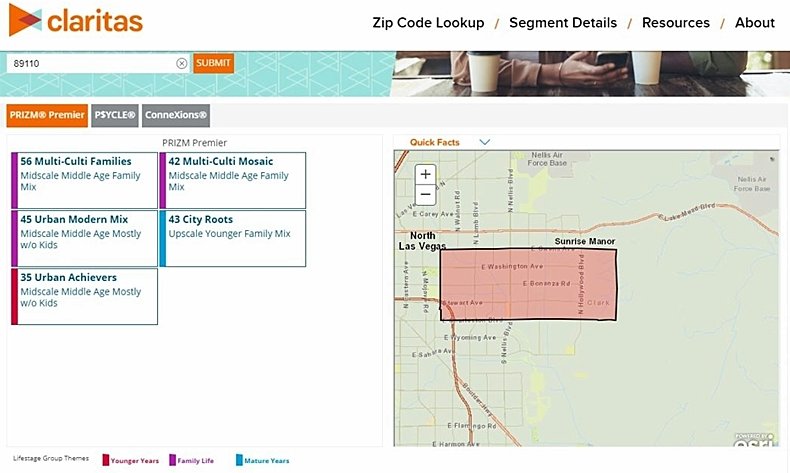
In market research, you can never have too much data. Claritas is a Nielsen product, and it is a massive database of consumer information. Its original research helps marketers understand consumer preferences and purchasing patterns. Claritas's segmentation tools identify unexpected habits and connections between and among user groups.
Pricing: Available upon request
4. MakeMyPersona: For creating a buyer persona.
MakeMyPersona by HubSpot is a simple tool that generates buyer personas after you've answered a series of questions about your ideal customer. It helps summarize customer profiles and identify their behaviors. The tool is most helpful to marketers who have already done some research and have a sense of their target audience but need a more detailed understanding of their buyer persona.
Pricing: Free
5. SurveyMonkey: For understanding consumer preferences.
There is no market research without surveys and focus groups. Conducting a survey might seem like an easy task, but it's not, and you'll need a tool, just like with anything else. SurveyMonkey is probably the most popular survey tool, and its popularity is justified. It easily creates in-depth surveys that help you understand the market and consumer preferences.
Pricing: The Business tier starts at $25 per user per month for three users, moves up to $75 per user price that offers more capabilities; the third and highest level is Enterprise (pricing upon request). There is also a personal tier with various pricing levels.
6. Temper: For a super-quick understanding of consumer preferences.
You don't always need in-depth responses to find out something about your customers that interests you—especially because getting people to fill out questionnaires is not that easy.
Temper offers an alternative to traditional surveys: It's an add-on that helps you create one-question survey popups on your website. People are more likely to answer one-off questions when they are navigating through your site, and that leaves you with the information you need.
Pricing: $12/month for Hobby, $49/month for Pro, $89/month for Business, and $199/month for White Label.
7. SimilarWeb: For understanding your competitors' ad strategies.
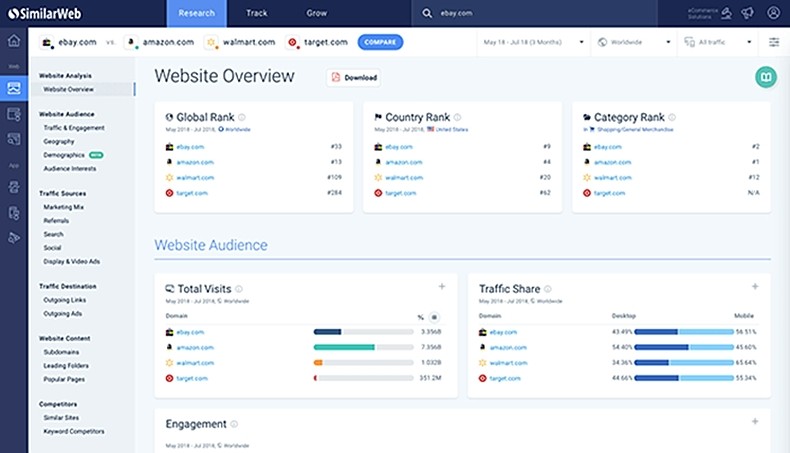
SimilarWeb is a go-to tool if you're looking to dive into competitors' ad strategies and to benchmark your efforts against your competitors and industry. To start, enter the URL of your competitor's website in the search bar. The tool will reveal the search ads your competitor is running, if any, and what their target keywords are. You'll also see whether a competitor is running any display ads, and, if so, which platforms are bringing the most traffic.
Pricing: Free. Paid plans are available upon request.
8. SEO SpyGlass: For backlink analysis.
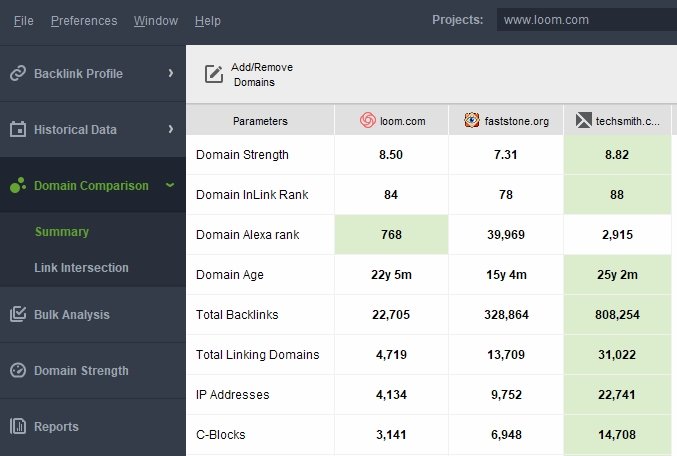
Competitor information relies on SEO competitor research. SEO SpyGlass is a handy tool for backlink analysis and all things related to it. Launch the tool and create a project for one of your competitors. Specify your competitors' websites and take a look at how they compare.
SEO SpyGlass will not only show all the backlinks but also specify the exact links that bring traffic and the exact number of visits from each backlink. It lets you see whether your competitors are buying sitewide links and which anchors work for your competition.
Pricing: Free. Paid plans are $124/year for Professional and $299/year for Enterprise.
9. BuzzSumo: For finding content that's popular in your industry, and for revealing competitors' content marketing results.
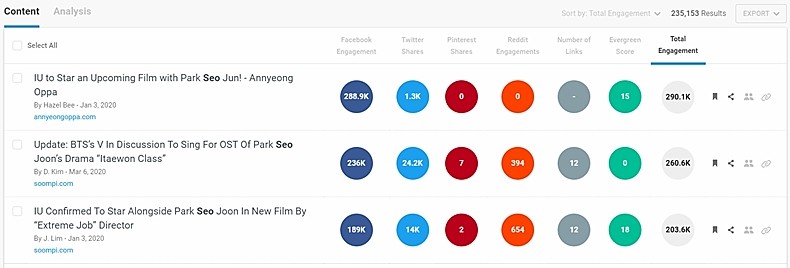
Content marketing is likely a part or will likely be a part of your marketing strategy. Though it's a potentially powerful tactic, content marketing can end up draining resources if you haven't done your research in advance. BuzzSumo is a simple tool that shows you the most-shared content in your industry, and by any specified blogs (for example, your competitors' blogs), for the past year. Such information will give you an idea of what to write for your audience to gain interest, traffic, and shares.
Pricing: Free. Paid plans: Pro is $99/month, Plus is $179/month, Large is $299/month, and Enterprise is $499+/month. Saves you 20% with a yearly plan.
10. BuiltWith: For discovering the technology behind websites.
BuiltWith is a great tool for figuring out what technology your competitors use. For companies that have moved online recently, the tool can be a lifesaver. Just type in the URL of your competitor's website, and BuiltWith will show you what technology the website runs on and which third-party scripts or plugins it uses—everything from analytics systems and email marketing services to A/B-testing tools and CRMs.
Pricing: Free. Paid plans: $295/month for Basic, $495/month for Pro, and $995/month for Team.
* * *
Market research is impossible without the right tools. They save you time and money and nights of coffee fortune-telling. But it's also important to plan and prioritize. The previous list hopefully helps you realize which answers you need first and which tools you can use to get them.
Most of the tools listed here are free or have a budget-friendly option; so, try as many as you want and then decide on your list of essentials.




